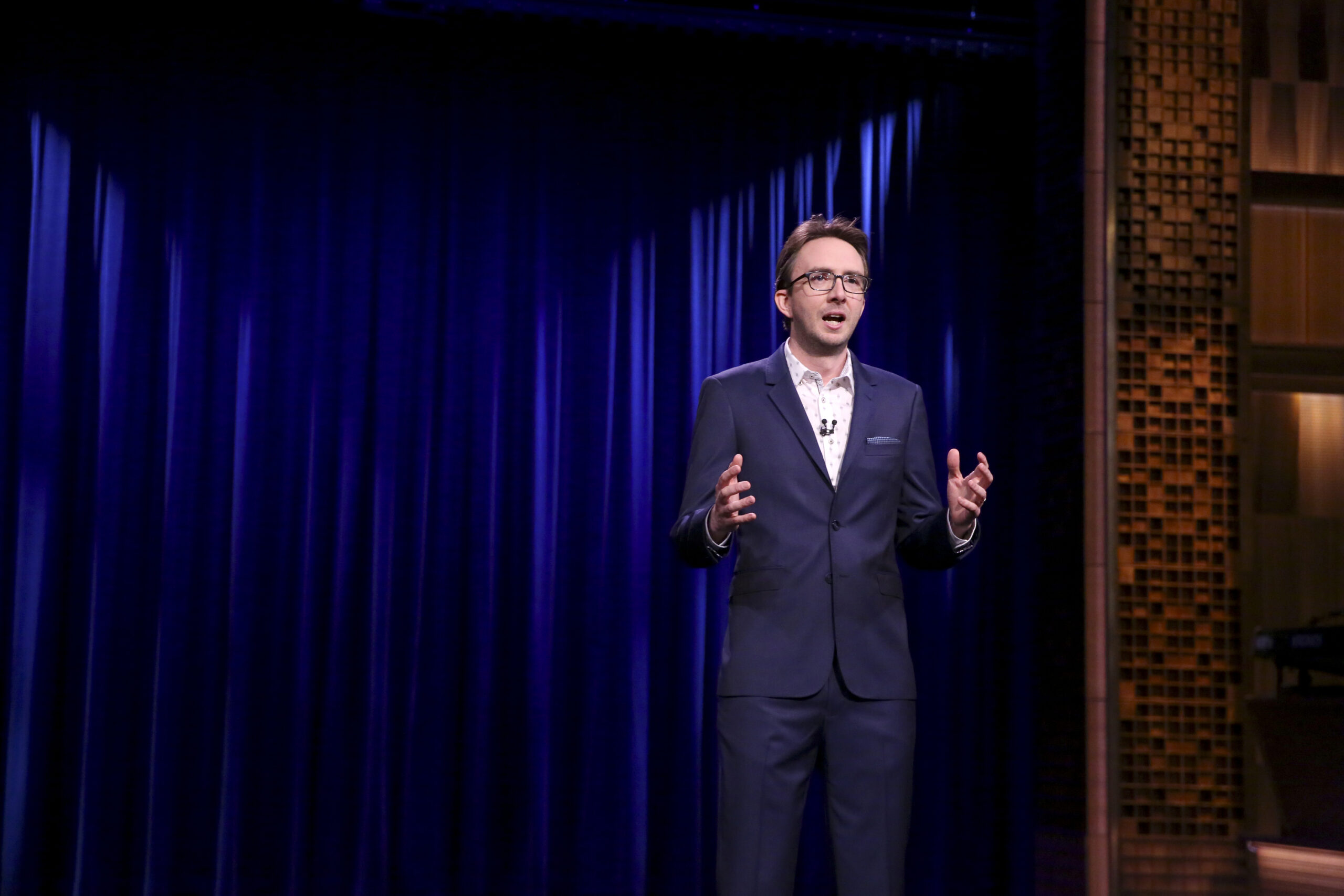
The comedian Joe List is set to premiere his newest special, entitled This Year’s Material, on his popular YouTube channel, continuing a trend of DIY releases, such as Mark Normand’s Out to Lunch, Shane Gillis’s Live in Austin, as well as List’s own excellent 2020 set I Hate Myself. Each of those specials have garnered millions of views, not due to any sort of controversial material that would attract otherwise disinterested lookie-loos, but from hundreds of hours of road-tested material that has captured the attention of those of us only interested in punchlines.
It is the opinion of this writer that Joe List is, pound-for-pound, the best working stand-up comic in America. His self-deprecating nature (“I Hate Myself” is both a title and common phrase for List) belies a novelistic detail for each and every possible angle in a premise. No meat is left on the bone of a List joke. A particular bit about the awfulness of flying from his 2020 special is a great example: from a passenger who can’t stop yawning loudly, to the proximity of a talkative aisle companion, and the inability to sleep on a flight. (Author’s note: transcribing a joke sucks. Here’s the bit in its entirety.)
Born in Massachusetts, List, 40, started out in the Boston comedy scene, notorious for their tough crowds that have molded some of the greatest comedic minds of the past 50 years; acts as disparate as Steven Wright and Paula Poundstone, to underappreciated geniuses such as Don Gavin and the late Barry Crimins.
List eventually moved to New York where he found success as the opening act for both Nick Di Paolo and Louis C.K., a fellow product of the Boston scene. In 2013, List released his first album, So Far So Good, which was followed by Are You Mad At Me three years later. Much like Normand’s relationship with his own hero, Jerry Seinfeld, List has been able to effortlessly graduate from protege to peer — last year he and C.K wrote and filmed a movie together called Fourth of July, which we will touch upon later.
[embedded content][embedded content]
List is also a popular podcaster with no less than three shows to his name. Thankfully, each is its own entity and not simply a rehash of the other. Some comedians are guilty of this. (You know who you are.) Whether it’s the free-association zinger-a-thon Tuesdays With Stories he co-hosts with Normand; or holding an in-depth movie discussion with fellow comic Raanan Hershberg on Joe and Raanan Talk Movies; and the meditative Mindful Metal Jacket, List provides his fans with a well-rounded, and always hilarious, point of view.
SPIN: We’re nearing the end of this pandemic, and with being away from stages for such an extended period of time, did you have any struggles with building new material? I know comics were doing shows on Zoom or in parking lots for people in their cars, but neither are really conducive to building an act. You don’t know if that honk you heard was for a joke or somebody cut somebody off a block away.
Joe List: Absolutely, it’s weird. I’m not even sure how I came up with this material. I had about 20, maybe 25 minutes of material before I shot the other special (I Hate Myself) but I definitely did not get any material the first year of the pandemic. But once we started going out a little bit more, I could generate more material, little by little. Short answer: yeah, it was hard. It sucked.
It’s hard for a comedian to regain that skill, but what about audiences? Are they the same? Did they need to re-learn how to play their part?
Now it feels pretty back to normal, although it’s hard to remember what normal was. Certainly audiences have grown more sensitive to stuff…and I’m not exactly Bill Hicks.
We know famous audience members are super sensitive. Not to be the millionth person to bring up Will Smith, but one thing I haven’t seen mentioned is that “The Slap” is part of a growing number of occurrences of comics being attacked: Nick Di Paolo was sucker punched a couple of years ago and Big Jay Okerson was dragged off stage. Do we need security guards standing just right off the stage?
It’s definitely a concern. There are comics that will snap on audience members, and I remember saying to Joe DeRosa once, “Do you know how to fight?” Because he’ll eviscerate people and I always think a comic needs to be careful. Maybe it’s from growing up in Massachusetts, but some of these people will beat the shit out of you. And with social media, people know where you’re going to be. So, even before the Will Smith thing, that’s always been on my mind when I’m handling a heckler. There’s nothing protecting you up there. We think we’re safe because we’re on stage with a microphone, but you’re dealing with other human beings.
Have you had any close calls?
When I first started, there was this guy who looked very cranky, so I just made a joke about it. I said, “Oh no, this guy’s gonna kick the shit out of me.” I had a friend, also a tough guy, in the crowd and he blurted out, “No he isn’t!” Then they started jawing back and forth with each other. That was probably the closest call.
[embedded content][embedded content]
You started your career in Boston. I’m obsessed with the history of the Boston comedy scene: especially the go-go ‘80s where cocaine was everywhere, the hottest club was a Chinese restaurant called the Ding Ho and the talent that came out of that area was off the charts. What was it like starting there, of all places?
Wherever you start just feels the most normal to you. Now that I’ve been all over, I realize what a great place it was to begin a career. So many of those Boston comics never leave, so a few of us, Louis C.K., Bill Burr, have the same experiences because the same Boston comics, like Don Gavin, are still performing there. And they’re all great comics, like Tony V and Kevin Knox, who just passed away. For me, it was about killing. Your act had to be joke-dense. You had to kill when I started out. Now, it’s less prioritized in comedy. But [Boston comics] were such joke guys, it just made me really want to be good and have a lot of laughs in my set.
Yeah, I can imagine if you’re on a bill, sandwiched between Don Gavin and Steven Wright, you better have a lot of jokes, or it’s gonna be dead air.
Right. The other thing with Boston is there are only so many clubs. A lot of the gigs are these fundraisers, VFW shows, firehouses, so, it’s mostly cops and firemen. I’ve seen a lot of comics who start elsewhere and they find success by taking their time or meandering. There was none of that in Boston. You couldn’t do that before. The locals would get angry and say, “Where are the jokes?”
So when did the switch from the focus of joke-heavy routines to this confessional (some say unfunny) type of comedy happen? I see some specials and think, “Save it for the therapist.”
(Thinks for a moment.) I don’t know. Good question. I know in the ‘90s the alt-comedy scene happened, but even those comics had plenty of jokes. I know over the past 10 to 15 years, and I don’t want to sound like Old Man Witherspoon here, but I know virtual signaling or this notion of letting audiences know you’re on the right side of things has become more prioritized. To the neglect of comedy.
And I think a lot of comics want to do that first, in certain scenes: let everybody know you’re a good person first, and comedy comes second. When in reality it should be reversed. In fact, that shouldn’t be a priority at all to let people know you’re a good person. You can just be a good person by going out and acting as a good person.
Like you said, even those alt comics like David Cross and Zach Galifinakis were trying to entertain.
The term “alt-comedy” was always in reference to the venue: performing in a bookstore or somewhere as opposed to in front of a brick-walled comedy club. But somewhere along the way it became a term that meant “alternative to comedy”.
[embedded content][embedded content]
You’re about to release your second YouTube special. What are the benefits of just releasing it yourself, outside of a major streamer?
A couple things. First, you don’t have to show it to anybody. If you go with a network or streaming service — for one, they own it — they always want to hear the act first. They need a transcript of your entire act. And then it becomes, “Can you say this, instead of that?” Second, it’s free. I think people are grateful that it’s free, that they can just go and watch it and you (the comic) don’t have to worry if people have that particular service or not.
Everyone has access to YouTube.
Right. I got rid of Netflix, nor do I have Peacock. I have Amazon Prime, but not Hulu. You want to be able to reach everybody. And with YouTube, you can break it up into clips, which is becoming more and more important. And then they subscribe to your channel. It’s like having your own network.
You often joke about the anxiety of putting out content, but you do put out a lot of content. I just watched your film film Engaged. It was very well written.
I appreciate that. I’ve been resisting this notion of feeding the algorithm. But then you come to the show and only half the tickets sold, everyone else is selling all these tickets. And I think, “They’re not much better than me. Oh, it’s because they’re putting their stuff out there.” I just have to play the game. You have to be on it: checking social media, creating clips, all this stuff that’s not creative to me. But it’s just part of it now.
You have three podcasts, but each is distinct from the other. Some comics have more than one pod, then you listen and think, “these are the same podcasts.” Mindful Metal Jacket is nothing like Tuesdays With Stories. And you and Normand are a comedy team at this point. Any plans to go on the road together?
We’ll do them at festivals — I think we’re at Skankfest this year — but the problem is Mark is doing so well right now, he’s losing money to split money. I guess I am, too, at this point.
My buddy, the great Rick Shapiro once said, “The path of a stand-up comic is to start in New York and then to move to LA…and die.” But you’ve stayed in New York. Now that you have a new special and a major motion picture that you both wrote and starred in, any plans to move out here to La La Land?
I come out to LA pretty often, but the issue is I have so many good friends out there, I don’t want to work. But that’s another career blind spot, I should come out West more often and do podcasts and shows there.
Back to this movie you shot, I’m very excited for it. Can you tell me anything about it?
We’re still getting all the promotional stuff together: cutting a trailer, making the poster, etc. It’ll be out in the summer, playing in a bunch of theaters. It’s a dramedy, I guess, about a guy from New England, who looks like me, who moved to New York, like me, and is married and sees a therapist and he’s got this big family trip coming up for the Fourth of July and he ends up confronting his parents to sort of help me deal with his mental disorders. Hilarity ensues. It’s a real independent movie. Louie paid for it and I hope people don’t hate it. Or me.
[embedded content][embedded content]
What is this baseball gig you have?
It’s every Wednesday night, on Zoom, for the Pioneer Baseball League. They’re out in Wyoming, North and South Dakota, and Montana. Small league, ten teams, and they want to reach a broader audience and try something different. So Thom Brennaman and I will do this Red Zone kind of thing, where we’ll watch five or so games and there will be comedy and baseball talk. I’m a baseball guy, so this is a dream come true. I’m hoping to do some play-by-play. I just love baseball, so I’m looking forward to it.
Finally, I know you’re a big Jimmy Buffett guy. So am I, so you’re in a safe space here.
It’s crazy how many people are anti-Jimmy Buffett, but he’s one of the most underrated songwriters.
You know who loves him? Bob Dylan.
Really?
Yeah, someone asked him, years ago, who his favorite songwriter was and he responded, “I love Jimmy Buffett.” Someone just needs to listen to “Death of an Unpopular Poet” or “He Went To Paris” and see how great those songs are.
Those are two of my favorites. When I was in high school, my girlfriend wanted me to write her a note, so I just wrote down “He Went To Paris” because it was in my head. She was like, “What is this, you moron?” I mean, it’s beautiful.
My wife hates him and threatens divorce whenever I put on one of his records. She hears it and is like, “I hate you and want you to die.”
I think it’s because of “Cheeseburger in Paradise,” one of his only hits — people think he’s a cheeseburger guy. There’s a lot of great ones. “Havana Daydreamin’,” love that song. But “Nautical Wheelers,” “Manana,” those are all great. I’m a huge Buffett guy.





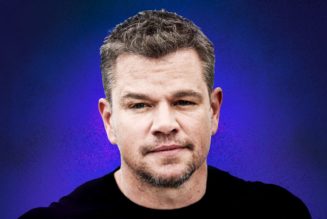
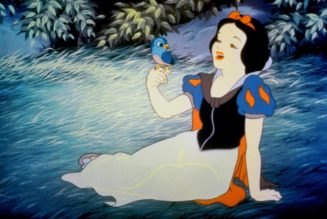

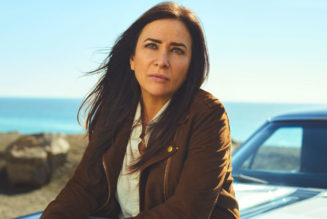

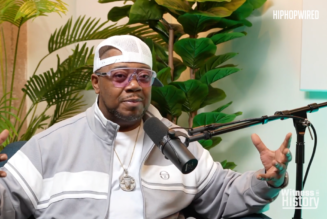
Tagged: Culture, FEATURES, interview, INTERVIEWS, Standup Comedy